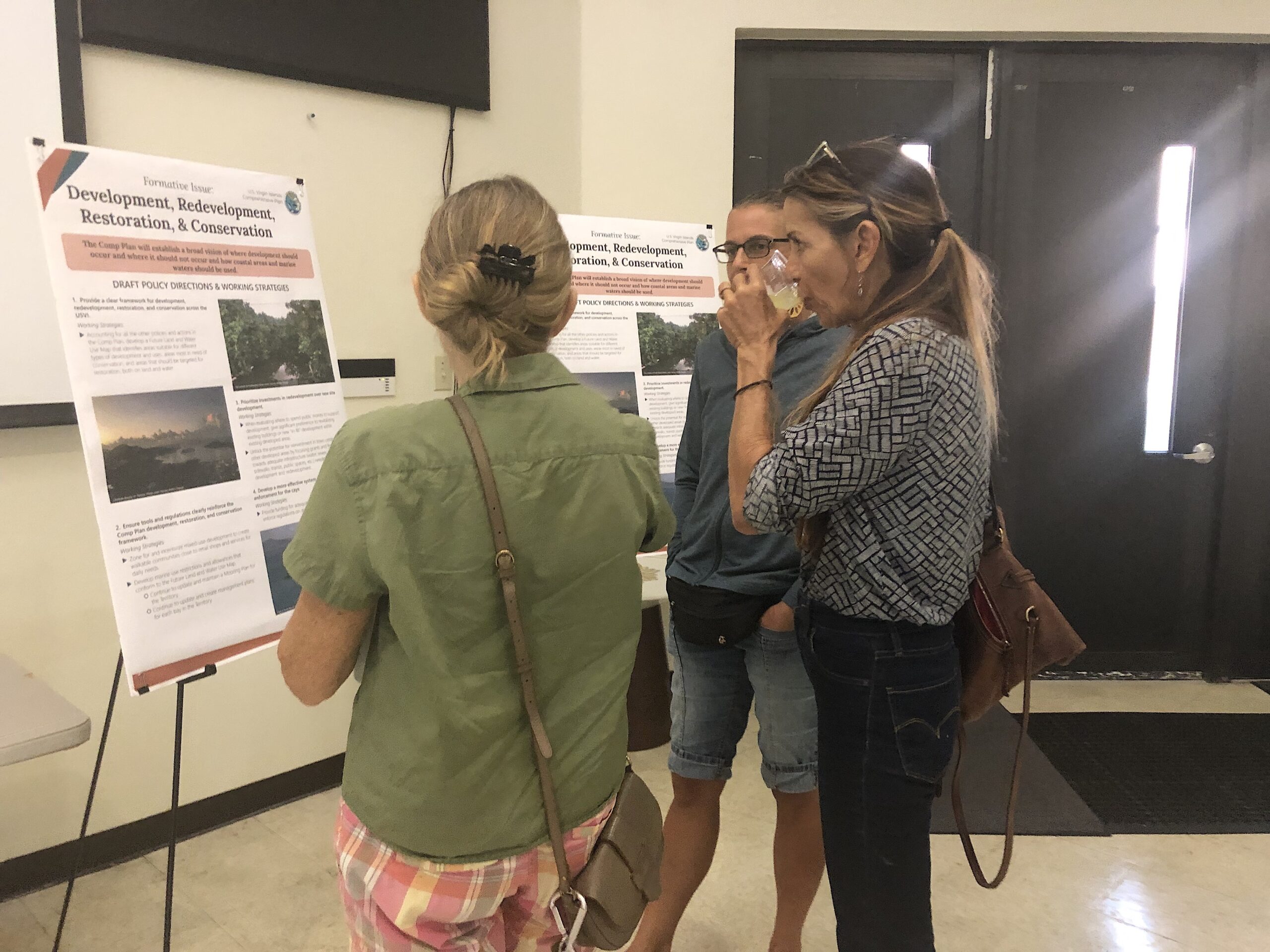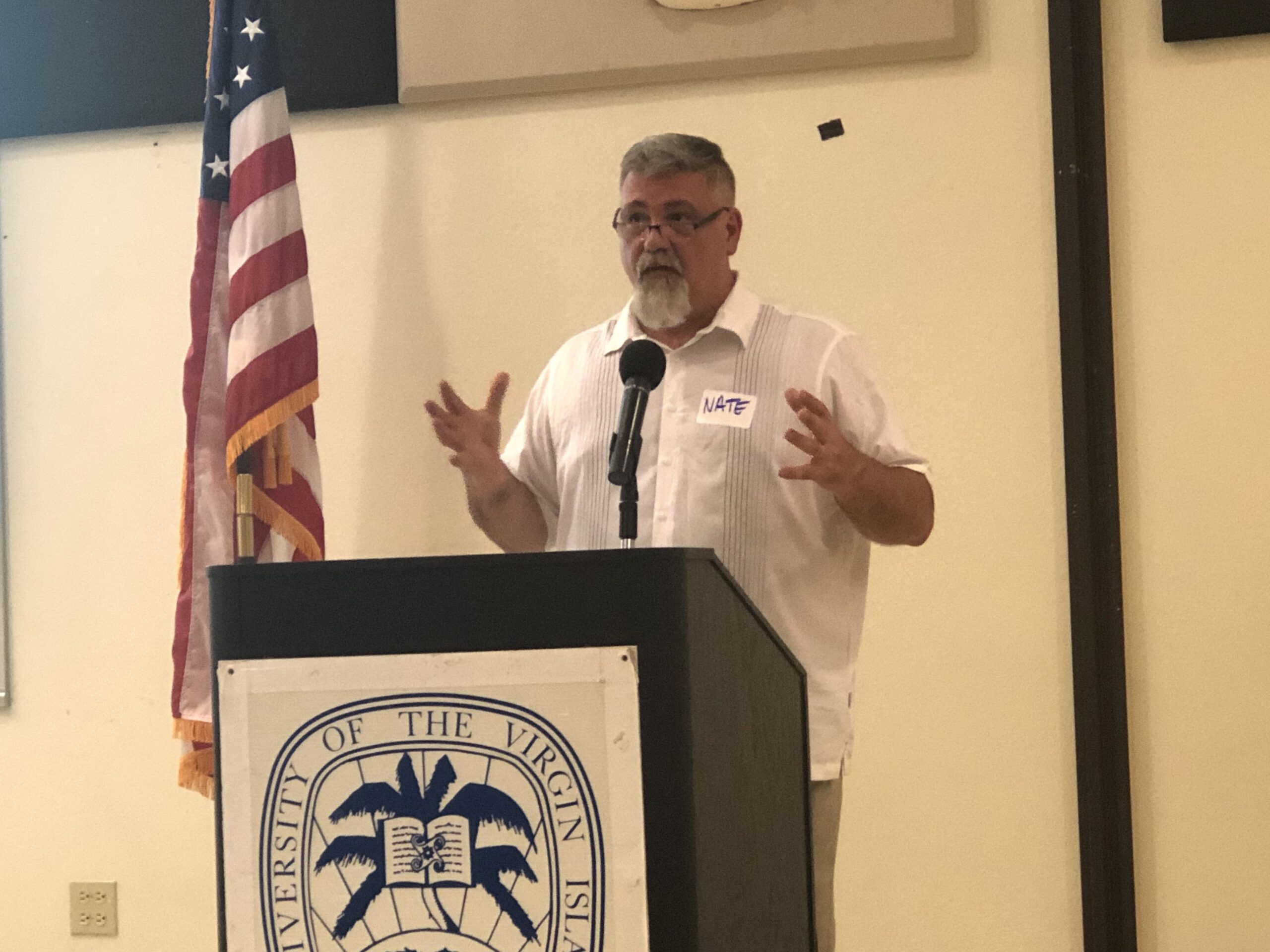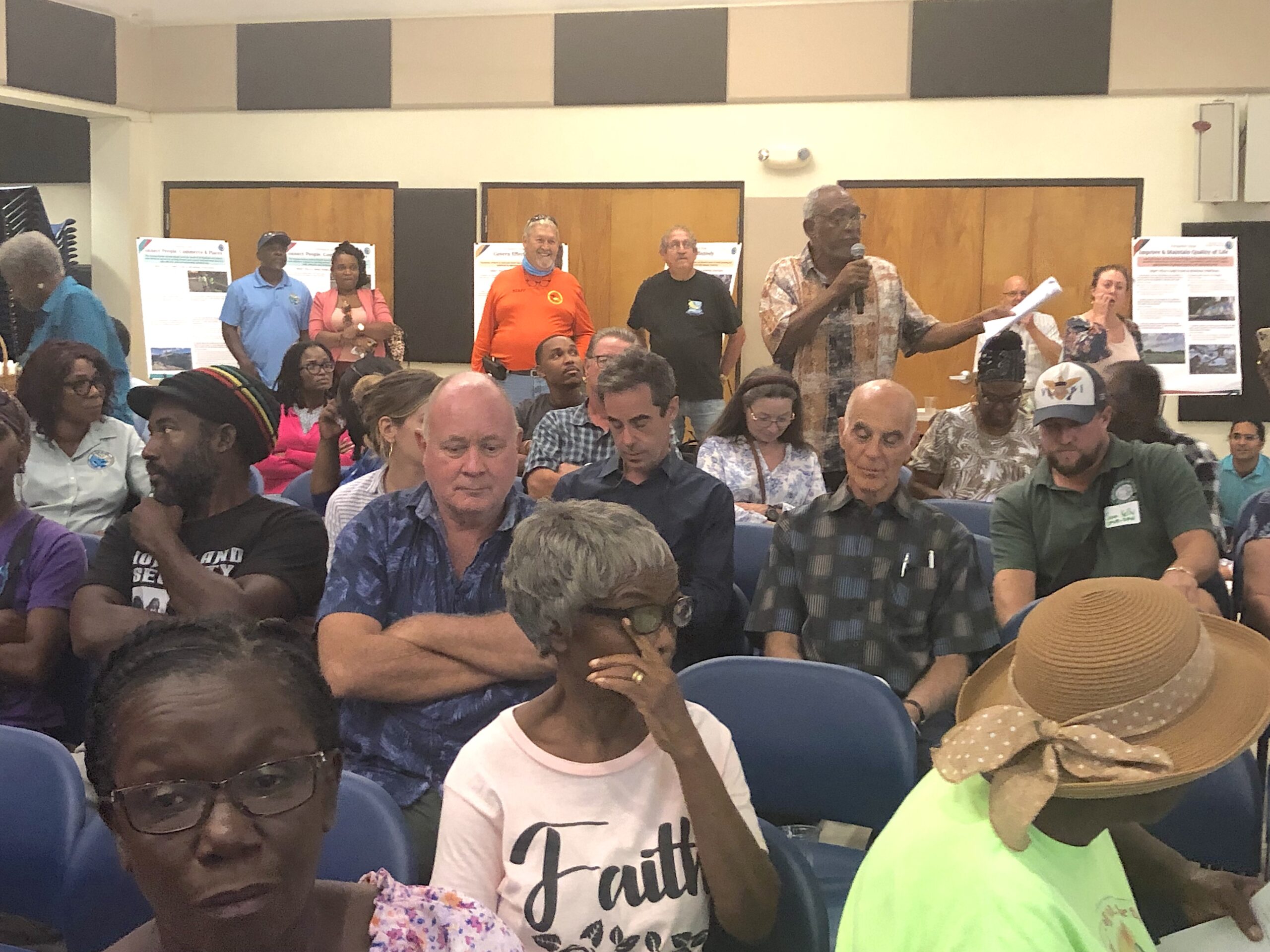Close to 200 people showed up to discuss a Comprehensive Land and Water Use Plan for St. Croix, being developed by the V.I. Department of Planning and Natural Resources and consultants from engineering consultants, the Horsley Witten Group.
The meeting grew out of forums last Spring on each island, where community members participated in voicing important issues about the future of the territory. The territory has struggled to write a comprehensive plan for 50 years.
Forty community members on three islands constituted working focus groups.
On Wednesday evening, the residents’ suggestions were condensed and presented on 10 poster boards. Then DPNR Commissioner Jean-Pierre Oriol and the consultants explained and elaborated on what St. Croix residents selected as the most important elements of life in the Virgin Islands.
“We’re not here to tell you what to do,” Jeff Davis of Horsley Witten said.

The final plan will be crafted to be “fair, equitable and consistent,” according to Davis. The document should demonstrate the shared vision of the community and the plan will demonstrate how to accomplish it.
Oriol described the process as looking down at the Virgin Islands from 30,000 feet during the March forums and now observing it from 15,000 feet.
“It is not a specific land and water use work yet,” he said.
In August, the recommendations with directions for creating policy will be elaborated on, “crystalized to guiding principles to write legislation,” and submitted to the V.I. Legislature before the end of the year, according to Nate Kelly, president of Horsley Witten.

One of the 10 issues deemed important by St. Croix residents is how to ensure safe and healthy residential areas while taking into account the economic, social and environmental prosperity of the territory. Reforming zoning policies, the probate system and ensuring there will be enough financing and workers to build homes are examples of working strategies suggested by Horsley Witten.
“I don’t think I’ve ever seen such an entrepreneurial society before. You need access to capital,” Kelly said, about the many residents who work two or three jobs.
Another issue developing land and water policies that sustain public amenities, foster public health equity and civic responsibility. The group suggested working strategies that include preserving public access to the shorelines, identifying locations for healthcare facilities expansion and continuing to develop and maintain the territorial park system.
Additionally, Horsley Witten recommended that water and land use decisions should be based on sound planning and enforced by agencies with adequate resources. The policies should diversify the economy and encourage sustainable food production, processing, storage and service, the group also said.
Part of the comprehensive plan also should determine where development, restoration and conservation should take place – how land, coastal areas and seawaters should be used.
“Where to build, store and where to leave alone,” Kelly said.
During the previous forums, residents agreed that the territory’s infrastructure needs to be strengthened to combat flooding, storms and sea level rise. The Virgin Islands should also reduce reliance on fossil fuels and develop a waste program to reduce landfill and salvage space. Stormwater and waste water management should protect water quality and infrastructure should be developed to treat, store and conserve water.
Regarding tourism and culture preservation, recommendations included incentives and resources to preserve and rehabilitate privately-owned historically significant structures and preserve culturally significant sites that are not already protected. Historical and cultural resources should be documented and mapped and combined with natural resources and infrastructure when possible.
The other issues that Crucians said (as well as residents of St.Thomas and St. John) are important can be found at www.planusvi.com.
After discussing the issues, the floor was opened to questions and comments from attendees and they were not shy.
The first question was from a man who wanted to know if the final comprehensive plan would survive changing administrations. Kelly told him that since the plan would be ratified by the Legislature, the only way to change it would be to enact new laws.

Some expressed concerns that senators would pass the legislation as submitted, including zoning changes. A former senator insisted that legislators could be depended on to do their job. Commissioner Oriol added that residents can vote to remove zoning decisions to another body instead of leaving the function with senators.
Responding to a question from former Senator and Commissioner Alicia Barnes, and Kelly said all government agencies had been engaged when developing recommendations and policies.
Another man asked what about established structures that do not fit into the plan once it is approved. Kelly said, as an example, an auto repair shop in a residential neighborhood would be allowed to remain but could not be expanded or sold. Once the owner no longer conducted business, the shop would be removed.
Only one person asked about the cost of the program and was told that property owners could not be expected to carry “unreasonable charges.”
Kelly said there will be another town hall after the plan has been fine-tuned, probably in November.
Residents can continue to comment on the website mentioned above until Aug. 6.


